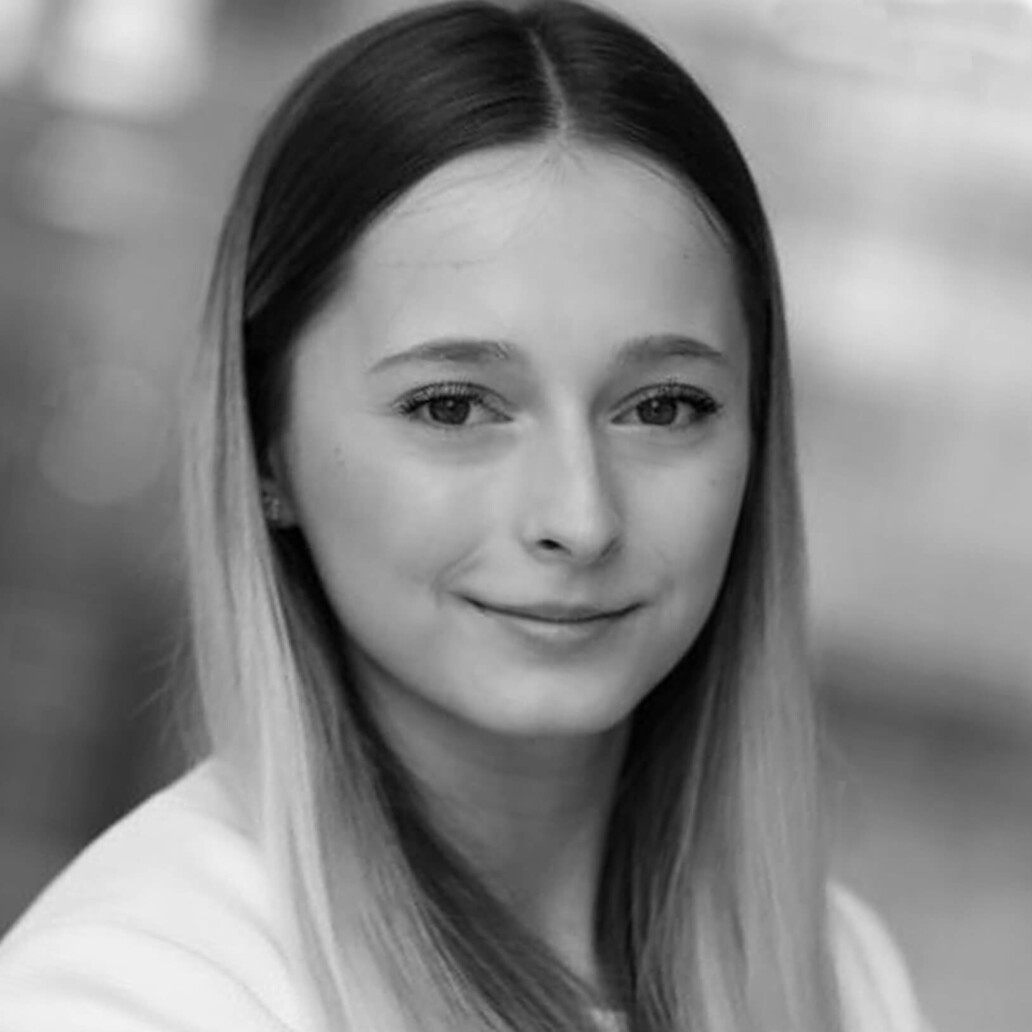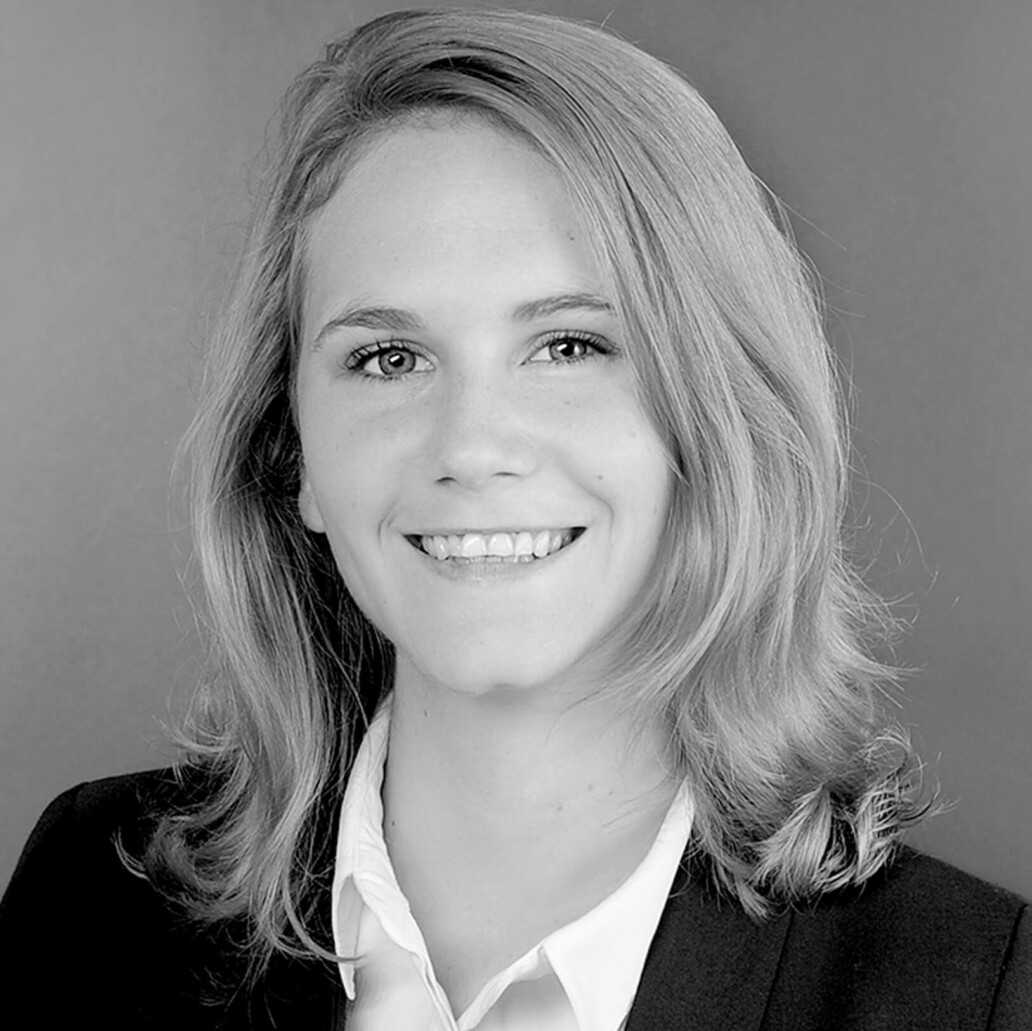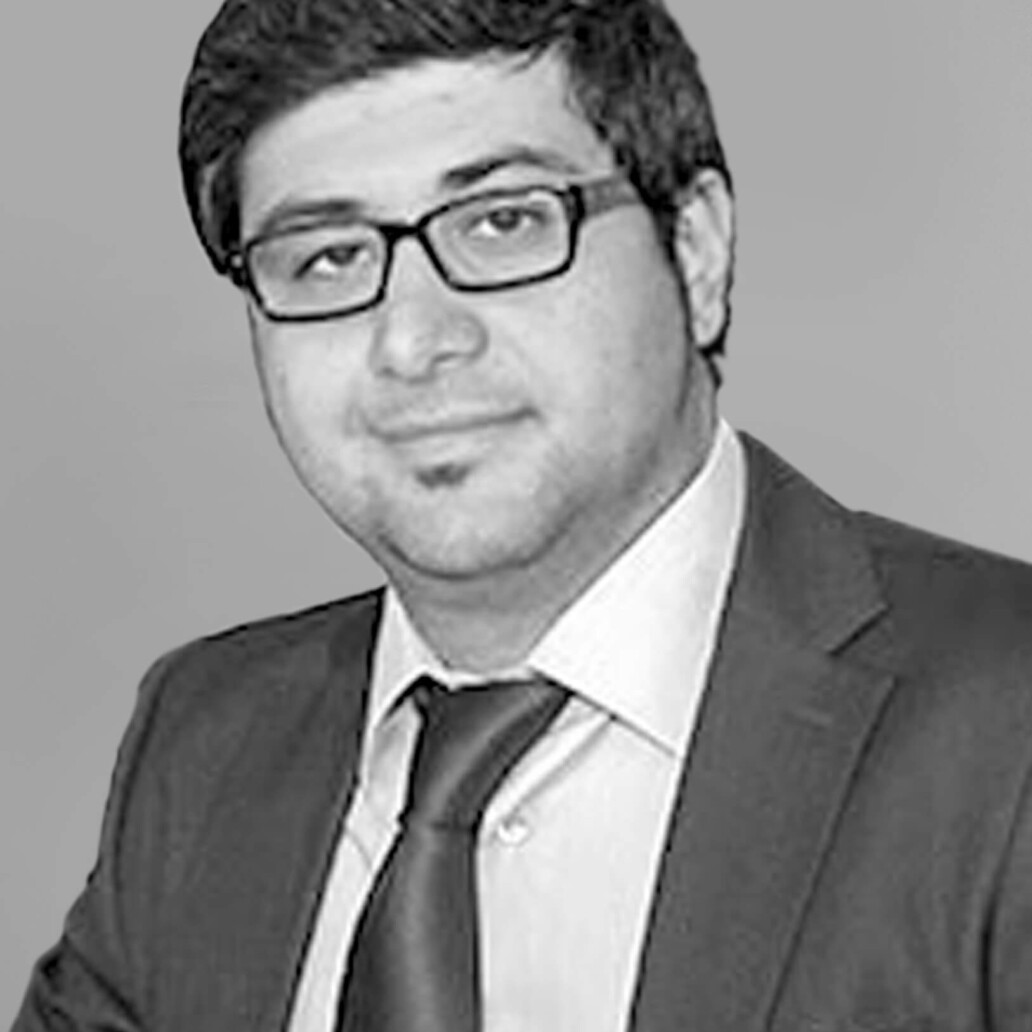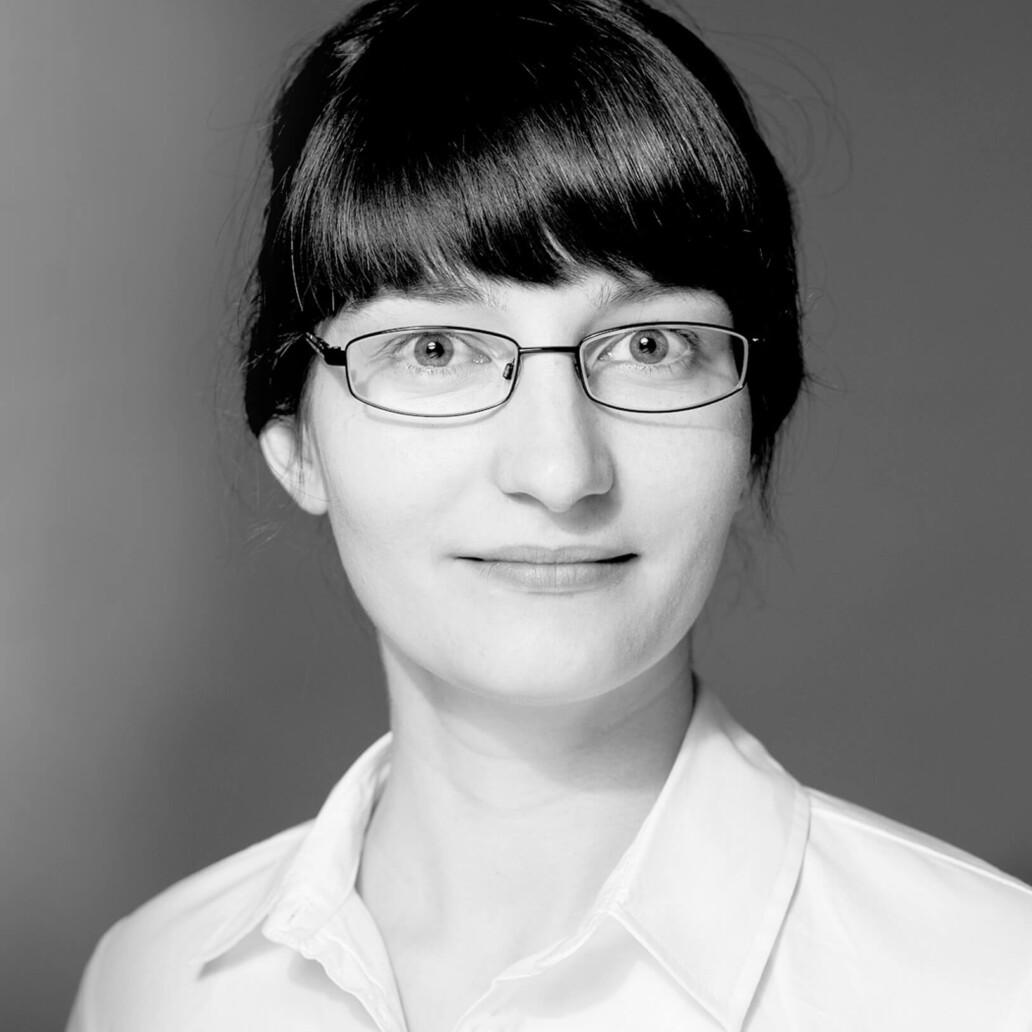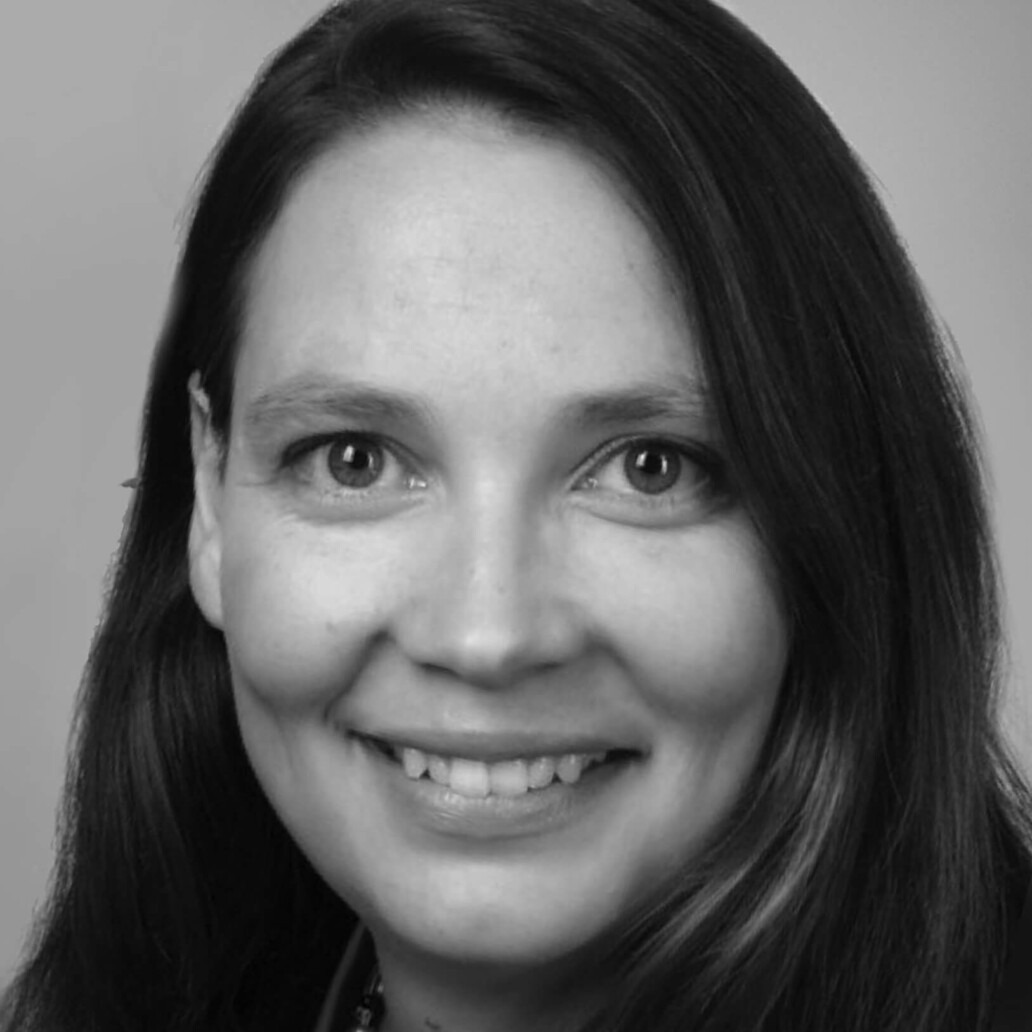Laura Zieher
Alumni
Master of Science (M.Sc.) Industrial Engineering,
Specialization in Production Management
Contact
Technische Universität Dortmund
Institut für Spanende Fertigung
Baroper Str. 303
44227 Dortmund
E-mail: laura.zieher(at)tu-dortmund.de
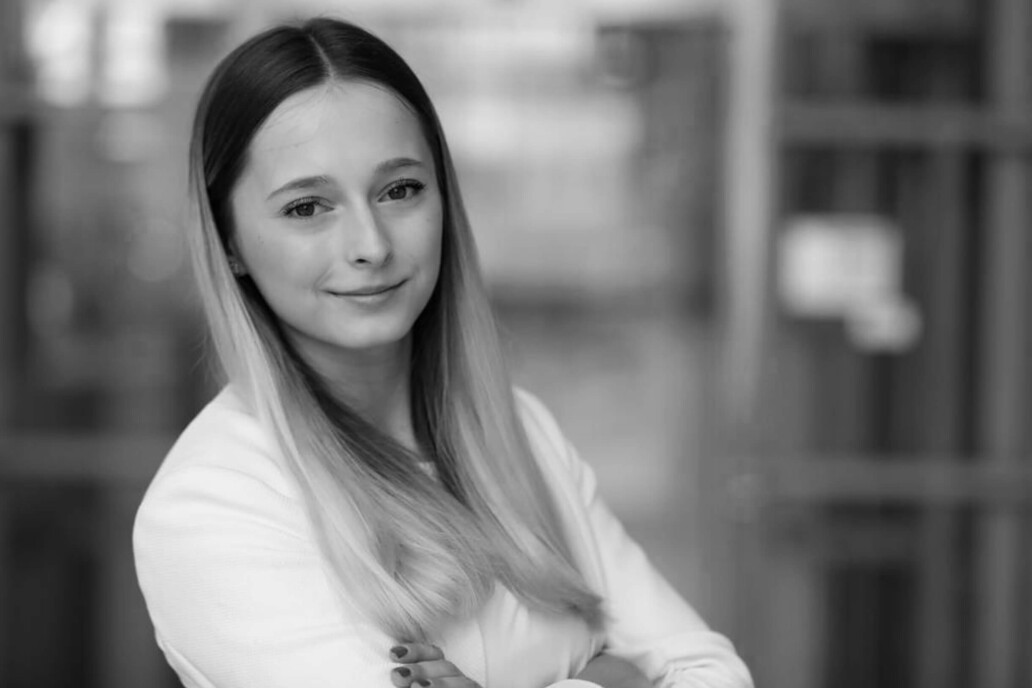
Dr. Eglantine Künle
Alumni
Contact
Energiewirtschaftliches Institut an der Universität zu Köln
T +49 221 277 29 495
E-mail: eglantine.kuenle(at)ewi.uni-koeln.de
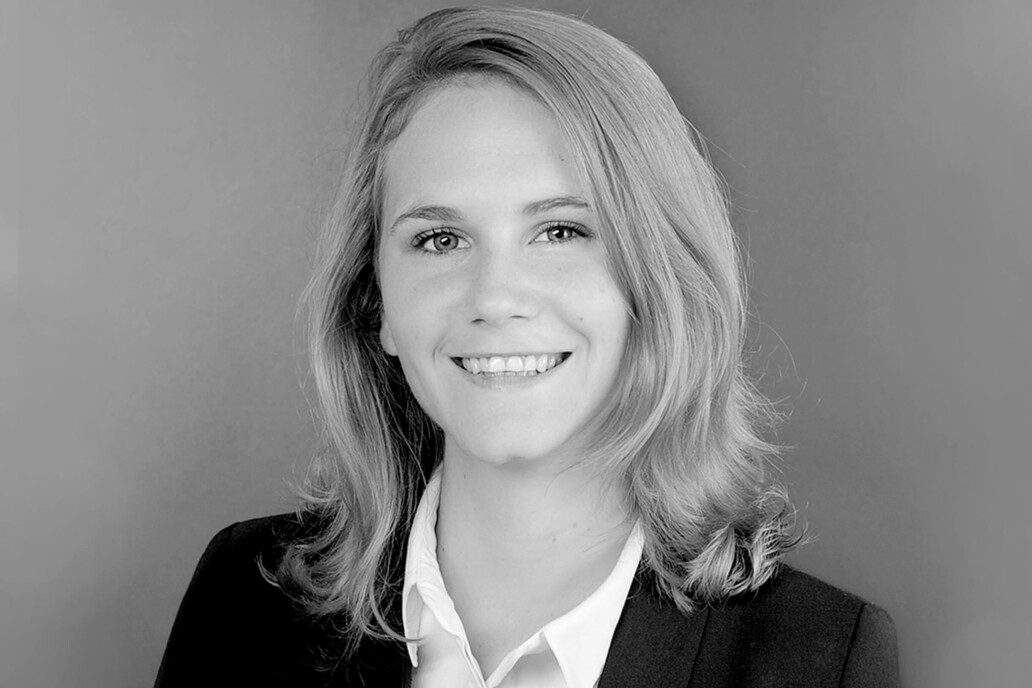
Vita
Eglantine Künle has been Manager and Chief Modeller at EWI since 2018. Her research focuses on the planning, modeling and economics of electricity systems and energy markets. Before joining the EWI, Eglantine Künle worked as a research assistant at the Clausthal Environmental Technology Research Center (CUTEC). In 2018, she completed her doctorate at TU Clausthal with a thesis on the topic of “Incentives to value the dispatchable fleet’s operational flexibility across energy markets”. She previously studied mechanical engineering at the Karlsruhe Institute of Technology (KIT) and at the Arts et Métiers ParisTech, Paris (France).
Dr. Ali Hashemifarzad
Alumni
Dr. of Engineering, Energy System Integration
Contact
BASF
Carl-Bosch-Str. 38
67063 Ludwigshafen

Research topic
Electrical load forecasting with the help of the adaptive neuro-fuzzy inference system
This research attempts to propose a new approach to the problem of load forecasting in order to achieve more accurate results with a lower error rate. For this purpose, a methodology based on the theories of chaos and concept drift is introduced and the Adaptive Neuro-Fuzzy Inference System (ANFIS) plays the main role in training and testing the model.
Vita
Ali Hashemifarzad has been working as a research assistant and doctoral student at the CUTEC Institute, Energy Research Center (EFZN) and at TU Clausthal since 2015. Prior to this, Mr. Hashemifarzad completed his Bachelor’s degree in Power Electrical Engineering at Semnan University in Iran. This was followed by a Master’s degree in Energy Systems Engineering at Clausthal University of Technology. During his studies, he completed two internships in the field of renewable energies and power plant technology. His research focuses on energy system analysis and simulation of various systems (e.g. wind turbines, multi-level converters, etc.). In his doctoral thesis, Mr. Hashemifarzad works on the analysis and prediction of electrical load using the Adaptive Neuro-Fuzzy Inference System (ANFIS).
Supervision
Second supervisor: Prof. Dr. Christian Siemers, TU Clausthal
Place of doctorate: TU Clausthal
Keywords
Load forecasting, chaos theory, ANFIS, artificial intelligence, energy system modeling
Publications
2018 “The Conceptual Design of Auto-Rotary Mono-Wing Decelerators Based on Maple Seeds as an entry decent landing system for Mars explorations”, European Rotorcraft Forum, September 2018, TU Delft, Netherlands – 2nd Author
2018 “New approach in Load forecasting based on Concept Drift and ANFIS”, International Conference on Sustainable Energy and Environment Sensing (SEES), June 2018 , University of Cambridge , Cambridge city, United Kingdom –Oral presentation
2018 “Impact of Electromobility on the Future Standard Load Profile”, 2nd international conference on Energy Economics and Energy Policy, ICEEEP 2018, Barcelona, Spain – Published in Conference Proceeding Journal
2017 “Short and Long Term load forecasting using Artificial Intelligence” 12th SDEWES Conference, Dubrovnik, Croatia – Oral Presentation- Under review
2016 “Case study of CCS Vs. power plant phasing out as solutions for power plant produced CO2 emission control”, 11th SDEWES Conference, Lisbon, Portugal – Published in Conference Proceeding Journal
2016 “Application of heat storage in modern decentralized energy supply systems”, Power to Heat 2016, Goslar, Germany- Published in Conference Proceeding Journal
Dr. Caroline Möller
Alumni
Dr. of Engineering Environmental technology/renewable energies
Contact
Reiner Lemoine Institut gGmbH
Rudower Chaussee 12
12489 Berlin
T +49 30 1208 434 75
E-mail: caroline.moeller(at)rl-institut.de
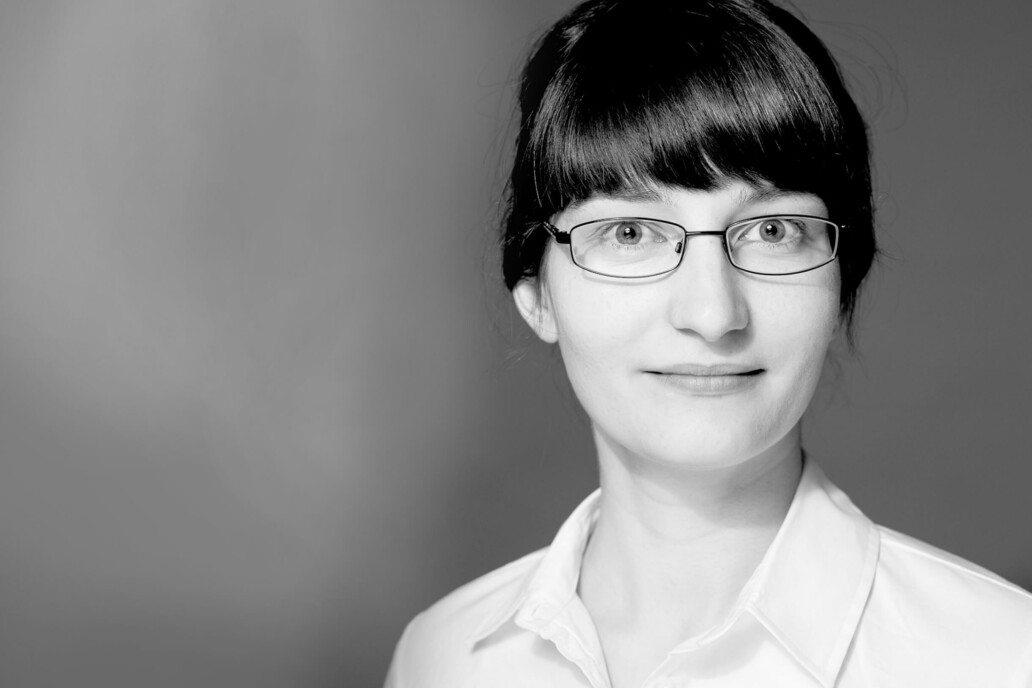
Vita
In contrast to the linear product life cycle, a material or object in a circular economy becomes the starting product for a new object or material at the end of its useful life. A central aspect of this circular economy is ecodesign. Through a systematic and comprehensive approach to product design, eco-design reduces the environmental impact over the entire life cycle and is therefore one of the measures that attempt to decouple economic growth from resource consumption. There is a great need for research in this area, as previous political and legal efforts have mainly focused on the energy efficiency of energy-related products, but ecodesign also includes many different components (e.g. reparability, recyclability, minimum service life, etc.) that have received little attention to date.
Research topic
Storage requirements and system costs in the electricity supply from the perspective of energy regions and energy districts
With the expansion of renewable energies (RE) at regional level, the concept of the energy region has become established. These are regions that are striving for an intensive expansion of RE and independence from the import of fossil resources. In this context, a self-sufficient energy supply plays a central role. The calculations of self-sufficiency, which are often based on balance sheets, do not take into account the compensation of fluctuating electricity generation through storage and thus neglect an essential feature of fluctuating renewable energy sources such as wind energy and photovoltaics, which are considered the foundation of a renewable energy supply. Using the Osnabrück-Steinfurt region as an example and on the basis of energy system models, the doctoral project establishes a connection between calculated and real self-sufficiency and deals with the question of which real degrees of self-sufficiency are inevitably achieved by the expansion of RE, how higher real degrees of self-sufficiency affect storage requirements and system costs and which synergy effects result from the interconnection of several regions. A particular focus is on transferring these issues to the neighborhood level. The topic of self-sufficiency at a regional level is controversial, but at the same time there are many pilot projects and business models at the neighborhood level as an association of several households. The synergy effects in generation and consumption are often cited as an advantage of neighborhoods, but the system level is much smaller than the regional level. The aim of the doctorate is to analyze these two system levels from a technical-economic perspective using model calculations and to evaluate their relationship.
Supervision
Second supervisor: Prof. Dr. Sandra Rosenberger, Hochschule Osnabrück
Place of doctorate: TU Clausthal
Keywords
Energy system modeling, scenario analysis, storage requirements, energy regions, district storage
Prof. Dr. Kathrin Greiff
Alumni
Contact
I.A.R. – Institut für Aufbereitung und Recycling an der RWTH Aachen
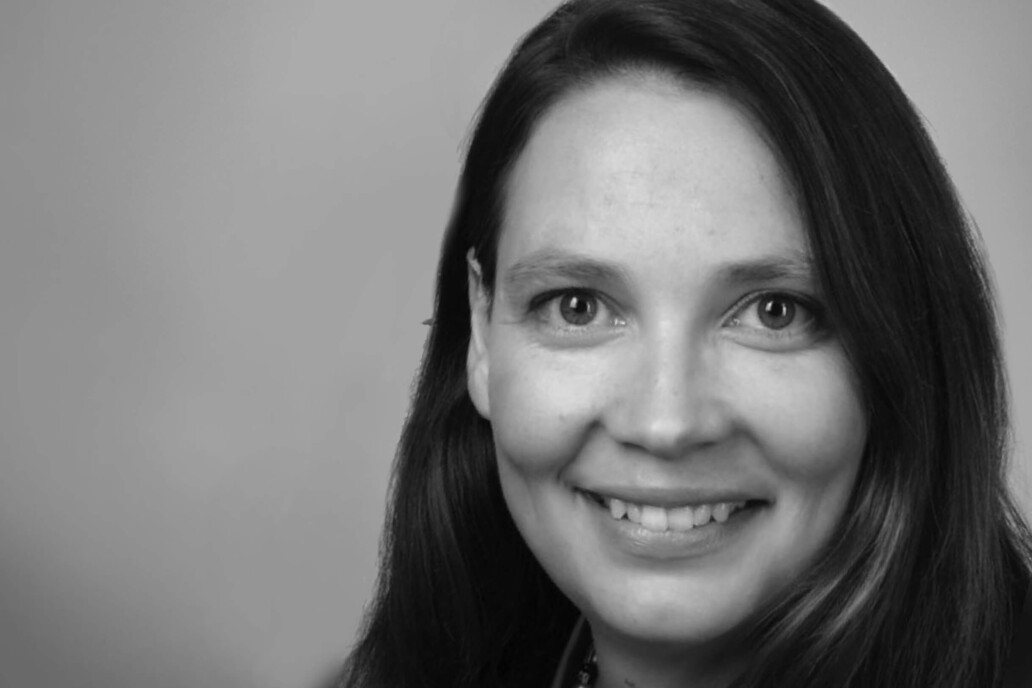
Research topics
Research topics
- Resource modeling at product and company level with a link to the macro level,
- Sustainability assessment of private households, lifestyles, products, services and companies using material and carbon footprints,
- Sustainability assessment of political strategies and development of recommendations for politics and business at the micro level
- LivingLab research (transdisciplinary research at the interface of science, business and private households)
Selected publications
Selected publications
Teubler, J., Buhl, J., Lettenmeier, M., Greiff, K., Liedtke, C. (2018): A Household´s Precious Burden – Typical patterns of household equipment and its resource use in Germany. Ecological Economics, 146, pp. 96-105.
Greiff, K., Teubler, J., Baedeker, C. Liedtke, C., Rohn, H. (2017): Material and Carbon Footprint of household activities. In Keyson, D. V., Guerra-Santin, O., Lockton, D. (Eds.): Living Labs. Design and Assessment of Sustainable Living. Springer. Heidelberg.
Baedeker C., Greiff, K., Grinewitschus, V., Hasselkuß, M., Keyson, D., Knutsson, J., Liedtke, C., Lockton, D., Lovric, T., Morrison, G., van Rijn, M, Rohn, H., Silvester, S., van Harinxma, W., Virdee , L. (2014): Transition through sustainable Product and Service Innovations in Sustainable Living Labs: application of user-centered research methodology within four Living Labs in Northern Europe (Conference Paper IST 2014)
Liedtke, C., Bienge, K., Wiesen, K., Teubler, J., Greiff, K., Lettenmeier, M., Rohn, H. (2014): Resource Use in the Production and Consumption System — The MIPS Approach. Resources 2014, 3(3), 544-574.
Greiff, K. B. (2010): Entwicklung einer Methodik zur Steuerung eines umweltschonenden Energiepflanzenanbaus auf Landesebene durch eine differenzierte Prämienzahlung. Faulstich, M., Menrad, K. (Hrsg.): Nachwachsende Rohstoffe in Forschung und Praxis. Wissenschaftszentrum Straubing. Attenkofer Verlag, Straubing.
Greiff, K., Weber-Blaschke, G., Faulstich, M., v. Haaren, C. (2010): Förderung eines umweltschonenden Energiepflanzenanbaus – Vorschlag für eine raum- und energiepflanzendifferenzierte Prämie
(Environmentally friendly cultivation of energy crops – Proposal for a premium differentiating region and crop species), Naturschutz und Landschaftsplanung, 42 (4), 2010, S. 101-107.
Faulstich, M., Greiff, K. B. (2008): Klimaschutz durch Biomasse. Ergebnisse des SRU Sondergutachtens 2007. Zeitschrift für Umweltschutz und Schadstoff-Forschung 21 UWSF (3), pp. 161-169.
Weber-Blaschke, G., Pacher, C., Greiff, K., Faulstich, M. (2007): Ressourcenstrategien in Deutschland.
85. Abfallwirtschaftliches Kolloquium „Vom Abfall zur Ressource“, Universität Stuttgart.
Mayer, W., Greiff, K. (2007): Energiegewinnung aus Biomasse. Wasser und Abfall, Vol. 7-8, S. 44-47.
Sachverständigenrat für Umweltfragen (SRU) (2007): Klimaschutz durch Biomasse. Berlin.
Erich-Schmidt-Verlag, Berlin.
Zander, H., Hettich, E., Greiff, K., Chatwell, L., Skerra, A. (2007): Biochemical characterization of the recombinant human Nogo-A ectodomain. FEBS Journal, No. 274, 10, pp. 2603 – 2613.
Ausgewählte Projekte
Landscaping – Untersuchung der Anforderung an die energieintensive Wirtschaft und den Standort NRW im Übergang zu einem weitgehend auf erneuerbaren Energien basierenden Energiesystem der Zukunft (2017-2018), gefördert durch das Land NRW
Bewertung von Green Bonds. Bewertung der vermiedenen Treibhausgasemissionen durch den NRW.Bank.Green Bond (2017-2018), im Auftrag der NRW Bank.
RegioPlast. Quality Standards for Recycled Plastic as Enabler of Zero Waste Systems (2017). Gefördert durch European Institute of Innovation & Technology (EIT).
Entwicklung eines Footprint-Rechners (Material Footprint und Carbon Footprint) als online Tool für Henkel, BV Glas und zur online Nutzung (2014 – 2017) – www.ressourcen-rechner.de
„SuslabNWE: Errichtung einer vernetzten Infrastruktur für nutzerintegrierte Nachhaltigkeitsinnovationen“ 2012 – 2015, gefördert durch EU INTERREG IVB, Kofinanzierung Deutschland Ministerium für Innovation, Wissenschaft und Forschung des Landes NRW – darunter Leitung des Teilprojekts: MIPS Haushaltsanalyse“
„Global nachhaltige materielle Wohlstandniveaus – Analyse und Veranschaulichung global nachhaltiger materieller Versorgungsgrade auf der Ebene von Haushalten“ 2012 – 2014, gefördert durch das UBA; Fokus Haushaltsgüter inkl. IKT
„Rückgabe und Nutzung gebrauchter Handys“ 2011 – 2013, gefördert durch das BMBF
„Nachhaltigkeitsinnovation in LivingLabs“ 2011-2012, gefördert durch das BMBF und VDI/VDE
„Ökologische Auswirkungen von Landnutzungsänderungen durch verstärkten Anbau von nachwachsenden Rohstoffen in Bayern“ (2008-2009), in Kooperation mit Bayerische Landesanstalt für Landwirtschaft (LfL), Bayerische Landesanstalt für Wald- und forstwirtschaft (LWF), Technologie- und Förderzentrum (TFZ), gefördert durch das Bayerische Staatsministerium für Landwirtschaft und Forsten

